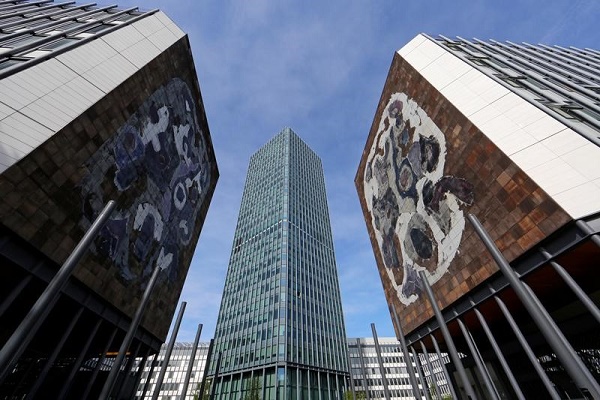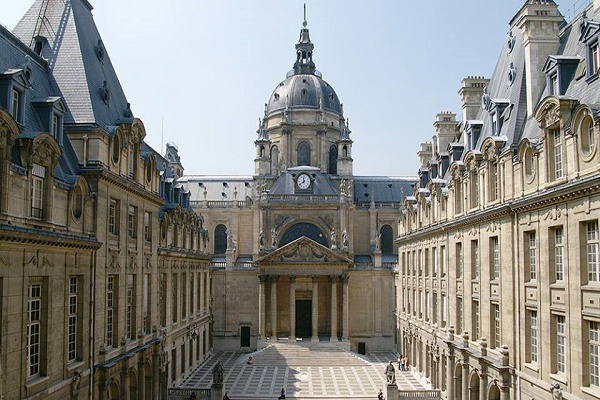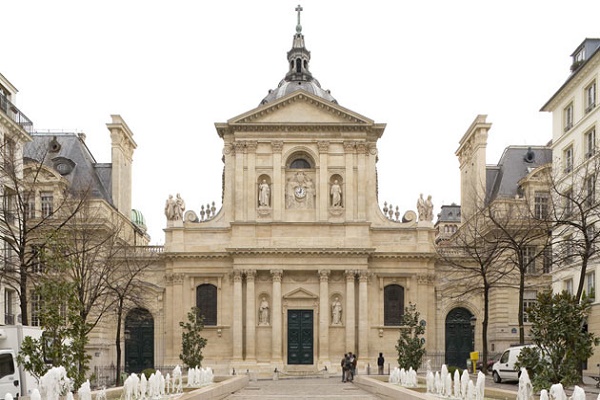University Rankings
- QS World University Rankings 36
- Times Higher Education World University Rankings 65
- Academic Ranking of World Universities 42
- QS Sustainability Ranking 22




1. Overview and History
Sorbonne University traces its roots back to the Collège de Sorbonne, founded in 1257 by Robert de Sorbon. Initially a theological college, it evolved over the centuries to encompass arts, sciences, and humanities. The modern university emerged in 2018, merging historic institutions like Paris-Sorbonne University (focused on humanities) and Pierre and Marie Curie University (focused on science and medicine) to create a multidisciplinary powerhouse with a global reputation for excellence.
2. Campus and Facilities
Sorbonne University boasts numerous campuses across Paris, including the historic Latin Quarter campus, as well as modern facilities in Jussieu, Clignancourt, and Malesherbes. Students have access to state-of-the-art laboratories, libraries, research centers, sports facilities, student residences, and cultural venues. The university’s central location provides unparalleled access to the vibrant cultural and intellectual life of Paris.
3. Academic Programs
Sorbonne University offers a wide range of undergraduate, graduate, and doctoral programs across three faculties: Humanities, Science and Engineering, and Medicine. These programs cover diverse fields including literature, history, philosophy, mathematics, physics, chemistry, biology, medicine, law, economics, and management. The university is known for its rigorous academic standards and its focus on research-led teaching.
4. Research and Innovation
Research and innovation are at the heart of Sorbonne University’s mission. Its researchers are at the forefront of scientific discovery in areas such as climate change, artificial intelligence, medicine, and nanotechnology. The university has numerous partnerships with industry and government, and it is actively involved in technology transfer and entrepreneurship initiatives.
5. Internationalization
Sorbonne University has a strong international focus, welcoming students and researchers from around the world. It offers a range of international programs and partnerships, including dual degrees and exchange programs. The university is committed to fostering a diverse and inclusive campus community.
6. Student Life
Student life at Sorbonne University is rich and varied. Numerous student clubs and associations cater to a wide range of interests, from sports and culture to politics and social activism. The university’s location in Paris provides students with unparalleled access to museums, theaters, concerts, and other cultural events.
7. Admissions and Tuition
Admission to Sorbonne University is competitive and based on academic merit. International students are welcome to apply and must meet specific language requirements. Tuition fees vary depending on the program and level of study. Financial aid and scholarship opportunities are available for eligible students.
8. Notable Alumni and Achievements
Sorbonne University and its predecessor institutions (notably the University of Paris) have produced numerous influential figures across various fields. Below is a selection of notable alumni, drawn from historical and contemporary records:
- Marie Curie (1867–1934): Physicist and chemist, first woman to win a Nobel Prize (Physics 1903, Chemistry 1911) for her pioneering research on radioactivity. She studied and later taught at the Sorbonne.
- Pierre Curie (1859–1906): Physicist, Nobel Prize winner in Physics (1903) with Marie Curie for research on radiation phenomena. He was a professor at the Sorbonne.
- Jean-Paul Sartre (1905–1980): Philosopher, playwright, and novelist, a leading figure in existentialism. He studied at the University of Paris and declined the Nobel Prize in Literature (1964).
- Simone de Beauvoir (1908–1986): Feminist philosopher and writer, author of The Second Sex. She studied philosophy at the Sorbonne, where she met Sartre.
- Émile Durkheim (1858–1917): Founding father of sociology, known for works like The Division of Labour in Society. He studied and taught at the Sorbonne.
- François Mitterrand (1916–1996): President of France (1981–1995), the longest-serving president in French history. He studied law and political science at the University of Paris.
- Irène Joliot-Curie (1897–1956): Chemist, daughter of Marie and Pierre Curie, Nobel Prize winner in Chemistry (1935) for discovering artificial radioactivity. She studied at the Sorbonne.
- Lévi-Strauss (1908–2009): Anthropologist, a key figure in structuralism, known for Tristes Tropiques. He studied philosophy at the Sorbonne.
- Victor Hugo (1802–1885): Author of Les Misérables and The Hunchback of Notre-Dame. While he did not formally graduate, he was associated with the Sorbonne through his intellectual circles.
- Elie Wiesel (1928–2016): Writer, Holocaust survivor, and Nobel Peace Prize winner (1986). He studied philosophy at the Sorbonne after World War II.
College Affiliation
News & Updates
 Timeless Learning: Unveiling Oxford’s Unique Tutorial System and Academic Excellence
Timeless Learning: Unveiling Oxford’s Unique Tutorial System and Academic Excellenceby Piyush Chauhan
December 20, 2025
 Innovating Tomorrow: Discovering Cutting-Edge Research and Urban Life at UCL
Innovating Tomorrow: Discovering Cutting-Edge Research and Urban Life at UCLby Piyush Chauhan
December 20, 2025
 Beyond Textbooks: Experiencing Vibrant Campus Life at an American University
Beyond Textbooks: Experiencing Vibrant Campus Life at an American Universityby Piyush Chauhan
December 20, 2025
 Navigating Complexity: Oxford’s Insights on Global Policy and Ethical AI Challenges
Navigating Complexity: Oxford’s Insights on Global Policy and Ethical AI Challengesby Piyush Chauhan
December 19, 2025
 Engineering Tomorrow: MIT’s Breakthroughs in AI and Robotics Transforming Industries
Engineering Tomorrow: MIT’s Breakthroughs in AI and Robotics Transforming Industriesby Piyush Chauhan
December 19, 2025
Courses & Fees
| Course Name | Duration | Fees (in ₹) |
|---|---|---|
| Master in Artificial Intelligence | 2 years | 12,00,000 |
| Bachelor in International Business | 3 years | 10,00,000 |
| Master in Molecular Biology | 2 years | 15,00,000 |
Frequently Asked Questions
The primary language of instruction at Sorbonne University is French. However, some programs, particularly at the graduate level, are offered in English.
International students can apply online through the university's website. They need to submit transcripts, language proficiency scores, and other required documents.
Yes, Sorbonne University offers a range of scholarships and financial aid options for international students based on academic merit and financial need.
Students can choose from university residences, private apartments, or homestays. The university's housing service can assist students in finding accommodation.
The academic year is typically divided into two semesters, with the fall semester starting in September and the spring semester starting in January.
Video Highlights

Sorbonne University: A World-Class University in the Heart of Paris
